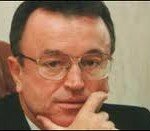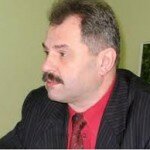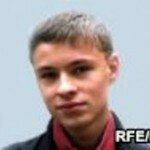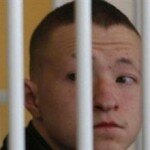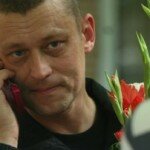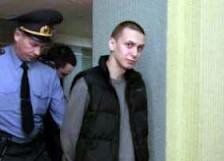
The first things for which Alexander Franckievich asked, after he appeared in the Human Rights Centre Viasna, on the day when he was released from the penal colony no 22 in Ivanceviche, were paper and envelopes. He wanted to write to his friends as soon as possible. This activity was constantly interrupted by phone calls and visits of journalists who wanted to congratulate on the release and ask questions about his time in prison. Alexander Franckievich gave an interview to the Viasna’s website.
Alexander, in an interview you had given shortly after your release, you did not complain about the time you spent in prison. Does this mean that everything was well?
– Of course, that it was not well. I just think that the atmosphere of intimidation present in our society should not be fostered. On the one hand, it should be talked about the repression of the prisoners, either for political reasons or not. On the other hand, we foment the atmosphere of intimidation in the community … I do not want to take part in this. I’m not interested in scaring people, making them think about what it can happen to them if they will go to jail, making them fear that somebody will try to break them … Some people have lost self-confidence, and I do not intend to incite in them fear and cause that they will withdraw from any kind of civic activity. I believe that if a man is faithful to his principles and convictions, he/she is able to withstand anything. I, at any rate, did not feel that my life is endangered.
So did you feel that the authorities are trying to break you?
– Of course. They tried to break me and I watched how they tried to do it to others. In my case, this was done by some kind of top-down decisions (outside the area of my relationship with the administration of the colony), but I was able to observe the pressure exerted on other people, because of their conflict with the head of the colony, or his deputy. People were defending their rights, some even wrote complaints, for which they were repressed.
What was the hardest thing for you?
– The most painful for me was that some of my friends betrayed me, when I most needed them and they turned out to be people other than I thought. And of course, when the authorities tried to force me to write application for clemency, and when I was isolated from other prisoners. But from the first days in the colony I met friendly people, regardless of the circumstances. Regardless of the isolation, of all the methods of repression, there were people who remained people and I will always remember them.
Did you feel in the colony that you were treated differently due to your political status?
– Yes. Solzhenitsyn once wrote that political prisoner is one who can regain his freedom by renouncing his views. I fully understand it, because I experienced it when I was suggested to abandon my beliefs.
And speaking of relations with other prisoners, I was particularly interested in people convicted for economic crimes. They were interested in social life, politics, and it was interesting to talk to them. The vast majority of convicts are cynical people, any they see all ideas through the prism of personal gain, so it was difficult for them to believe that a person can truly keep fidelity to some beliefs, and certain civic attitude. It seemed to them like a farce, or they did not attach any importance to this. There, exists a kind of prison ideology. Generally, therefore, the convicts did not express interest in anything I had to say.
Did you follow the fate of the other political prisoners?
– Of course. I read about them in the newspapers, I was corresponding with people who had some information. In the end all of us were united by a similar fate, despite differences in political views. Of course I kept my fingers crossed for them, regardless of ideological differences. Certain traits of Statkievich, Autukhovich, Dashkievich impress me.
spring96.org
